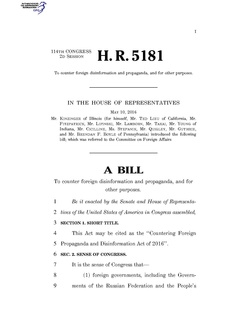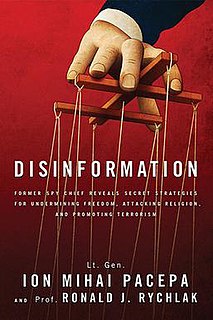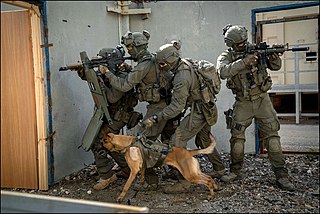
Disinformation is false information spread deliberately to deceive.

The Finnish Security Intelligence Service (Supo), formerly the Finnish Security Police, is the security and intelligence agency of Finland in charge of national security, such as counter-intelligence and counter-terrorism, under the jurisdiction of the Interior Ministry. Operational since 1949 and headquartered in Helsinki, Supo had 291 employees and a budget of 27.9 million euros in 2016. The Service had a distinct role during the Cold War in monitoring communists as well as in the balance between Finnish independence and Soviet appeasement (finlandization); after the 1990s Supo has focused more on countering terrorism and in the 2010s on preventing hybrid operations.

Russian–European Union relations are the international relations between the European Union (EU) and its largest bordering state, Russia, to the east. The relations of individual member states of the European Union and Russia vary, though a 1990s common foreign policy outline towards Russia was the first such EU foreign policy agreed. Furthermore, four European Union-Russia Common Spaces are agreed as a framework for establishing better relations. The latest EU-Russia strategic partnership was signed in 2011, but it was later challenged by the European Parliament in 2015 following the annexation of Crimea and the war in Donbass.

The Security Information Service (BIS), is the primary domestic national intelligence agency of the Czech Republic. It is responsible for collecting, analyzing, reporting and disseminating intelligence on threats to Czech Republic's national security, and conducting operations, covert and overt, both domestically and abroad. It also reports to and advises the Government of the Czech Republic on national security issues and situations that threaten the security of the nation.
The counter-terrorism page primarily deals with special police or military organizations that carry out arrest or direct combat with terrorists. This page deals with the other aspects of counter-terrorism:

Czech Republic–Russia relations are the bilateral foreign relations between the Czech Republic and the Russian Federation. Unlike Russia, the Czech Republic is a member of Western institutions including the European Union, NATO and the OECD. Therefore, Russia–European Union relations and NATO–Russia relations are playing key role while the Czech Republic is a target of Russian attempts for espionage and propaganda. Following the Russian military intervention in Ukraine from 2014, the Czech Republic participates in economic sanctions against Russia. Ongoing tensions in the late 2010s have been described as the Cold War II.
The East StratCom Task Force is a part of the administration of the European Union, focused on proactive communication of EU policies and activities in the Eastern neighbourhood and beyond. The Team was created as a conclusion of the European Council meeting on 19 and 20 March 2015, stressing the need to challenge the ongoing disinformation campaigns by Russia.“
The State Committee for National Security is the principal national security and intelligence agency of Tajikistan. Its main responsibilities include internal and border security, counter-intelligence, counter-terrorism, counter-narcotics, fighting organized crime, and surveillance. The chairman of the committee and all of his deputies are appointed by and answerable to the president of Tajikistan. Lieutenant General Saymumin Yatimov has served as the SCNS chairman since September 2, 2010.
Fake news websites are Internet websites that deliberately publish fake news—hoaxes, propaganda, and disinformation purporting to be real news—often using social media to drive web traffic and amplify their effect. Unlike news satire, fake news websites deliberately seek to be perceived as legitimate and taken at face value, often for financial or political gain. Such sites have promoted political falsehoods in Germany, Indonesia and the Philippines, Sweden, Myanmar, and the United States. Many sites originate in, or are promoted by, Russia, North Macedonia, Romania, and some individuals in the United States.

Countering Foreign Propaganda and Disinformation Act is a bipartisan bill that was introduced by the United States Congress on 10 May 2016. The bill was initially called the Countering Information Warfare Act.

Disinformation: Former Spy Chief Reveals Secret Strategies for Undermining Freedom, Attacking Religion, and Promoting Terrorism is a non-fiction book about disinformation tactics and history rooted in information warfare. It was written by former three-star general in the Securitate, the secret police of Socialist Republic of Romania, Ion Mihai Pacepa, and law professor Ronald J. Rychlak. It was published in 2013 along with a companion film, Disinformation: The Secret Strategy to Destroy the West.

The KGB and Soviet Disinformation: An Insider's View is a non-fiction book about the KGB's use of disinformation and information warfare during the Soviet Union period. It was written by former intelligence officer specializing in disinformation for the Czech Intelligence Service and retired professor of disinformation at Boston University, Ladislav Bittman.

Dezinformatsia: Active Measures in Soviet Strategy is a non-fiction book about disinformation and information warfare used by the KGB during the Soviet Union period, as part of their active measures tactics. The book was co-authored by Richard H. Shultz, professor of international politics at Tufts University, and Roy Godson, professor emeritus of government at Georgetown University.

The Intelligence Center for Counter-Terrorism and Organized Crime (CITCO) is the Spanish domestic intelligence agency responsible for the prevention of domestic terrorism, organized crime and other violent radical organizations by managing and analyzing all internal information of the country. It was formed in October 2014.

Europe-Georgia Institute (EGI) – is a hybrid non-governmental organization in Georgia. The Europe-Georgia Institute was founded by George Melashvili, Shalva Chkheidze and Revaz Topuria in 2015. The EGI states its goal is to inspire, empower, and connect people to change their world. The EGI is an independent civil society organization and focuses its campaigning on issues such as human rights, peacebuilding, promotion of good governance and support the involvement of youth in democratic process. The EGI emphasizes "independence and impartiality", and explicitly precludes political, economic, or religious factors in its decision making. EGI's principles and operational guidelines are highlighted in its Charter.
Arndt Freytag von Loringhoven is NATO's first chief of intelligence since December 1, 2016. He served as the director of Germany's Federal Intelligence Service (also called BND or Bundesnachrichtendienst between 2007 and 2010. He was also Germany's ambassador to the Czech Republic and as a diplomat at the German Embassy in Moscow.













